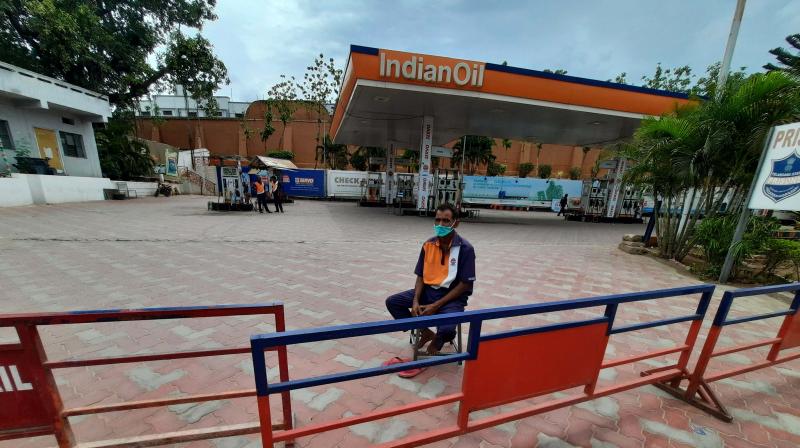IOCL too to stop supply of fuels on credit to petroleum traders
IOCL has informed petroleum pumps/traders that the sale will be only on a cash basis from the end of this month

Vijayawada: The state-owned oil marketing company IOCL will stop supply of fuels on credit basis to traders/petrol pumps, just as the BPCL and HPCL have already done. This is likely to affect the availability of petrol and diesel in AP.
IOCL has informed petroleum pumps/traders that the sale will be only on a cash basis from the end of this month. The BPCL and HPCL have begun the same practice in recent days.
Traders get supply from the oil marketing companies on credit basis regularly and pay the cash later. Petroleum traders supply fuel to bulk consumers too on credit basis and get payment from them at intervals.
This practice of credit has been in vogue for a long time among OMCs, traders/pumps and bulk fuel consumers based on mutual trust.
For instance, a petroleum trader having a 29,000-litre capacity fuel tank has to pay nearly Rs 30 lakh to the OMC, to get a supply of 11,000 litres of petrol at a cost of Rs 112.24 per litre and 18,000 litre of diesel at a cost of Rs 97.50 per litre.
Petroleum traders say this will not work out for a long time as they have to sell fuel in bulk too and not on an immediate payment basis. The bulk consumers will have to get their bills cleared for the works they did and then pay to the traders.
OMCs say they are losing revenue of Rs 25 per litre on diesel and Rs 9 per litre on petrol. They are already finding their fuel business not remunerative and intend to impose a series of curbs like non-issue of fuels on credit basis and imposing rationing on supply to the fuel stations to offset their losses.
Petroleum traders say the dealer margin of Rs 1.88 on diesel per litre and Rs 3.15 on petrol per litre remained unchanged for several years and this is affecting the gains from their business.
The petroleum traders urged the Centre and the state government to help resolve the issue so as to avoid short supply of fuels.

